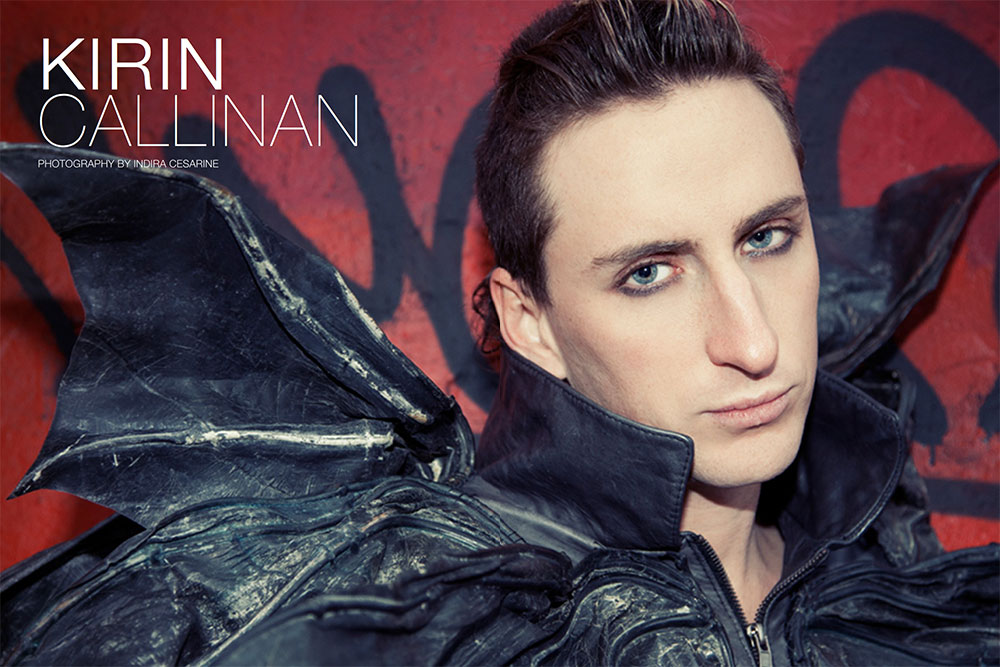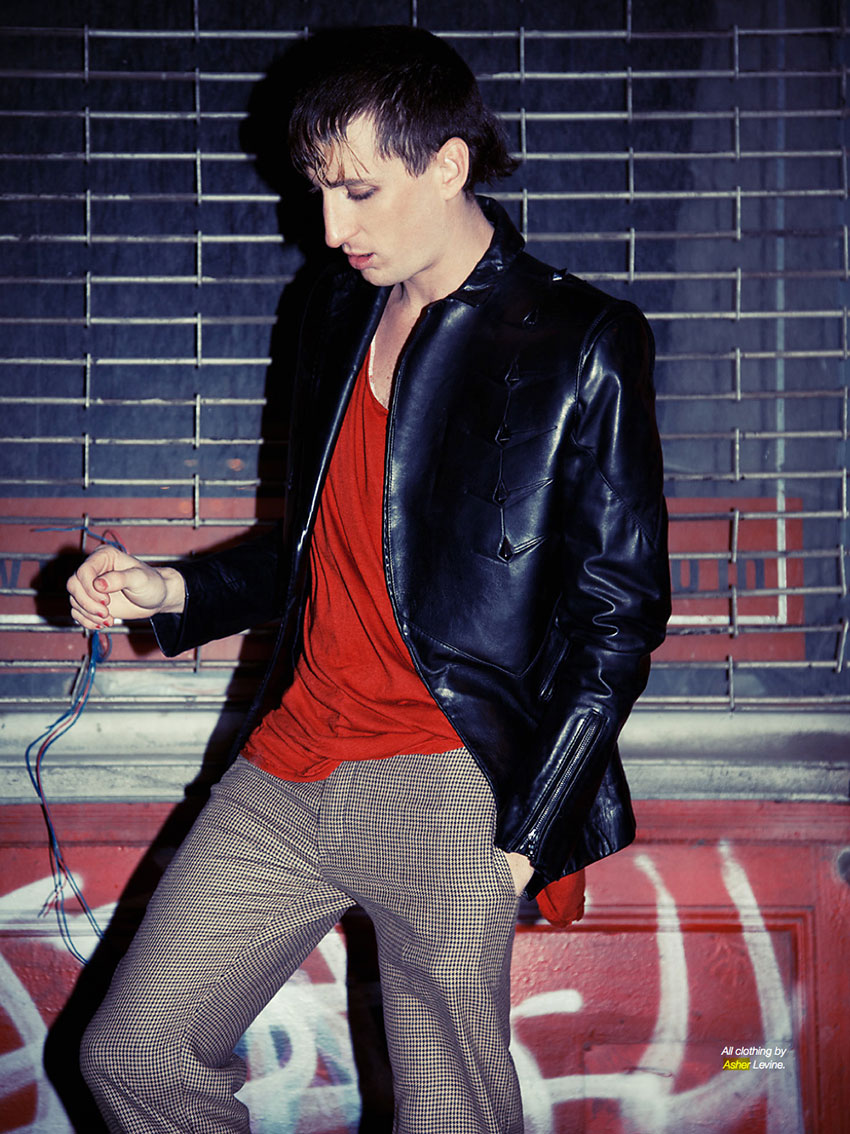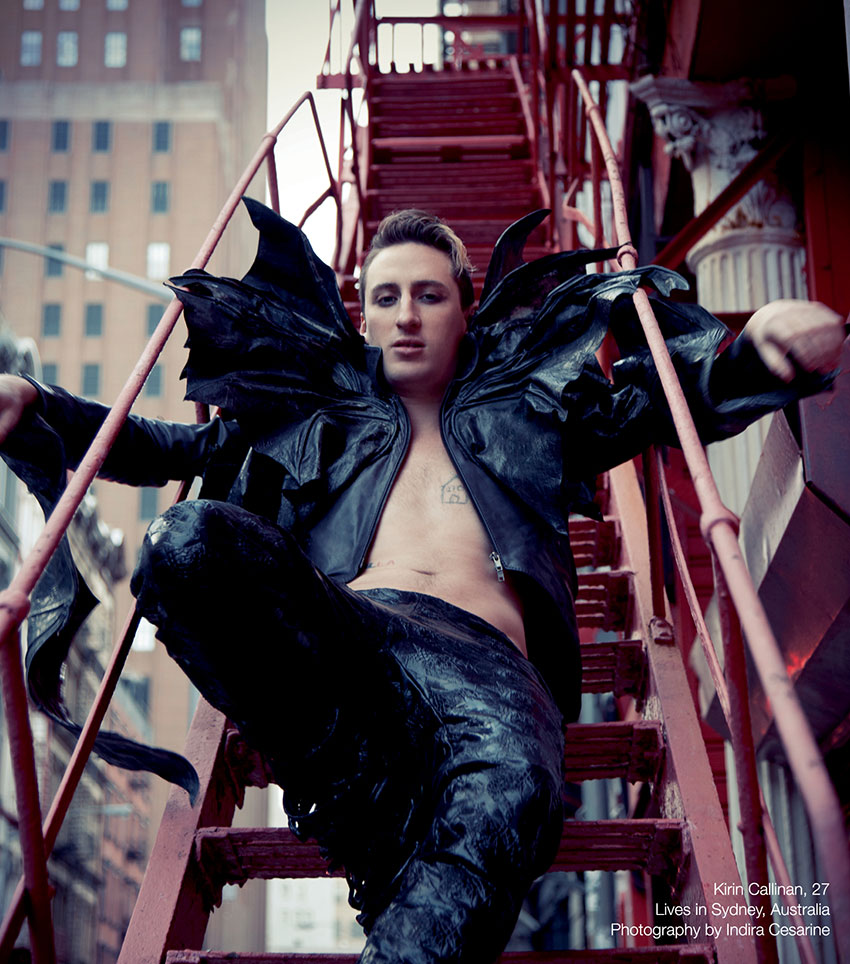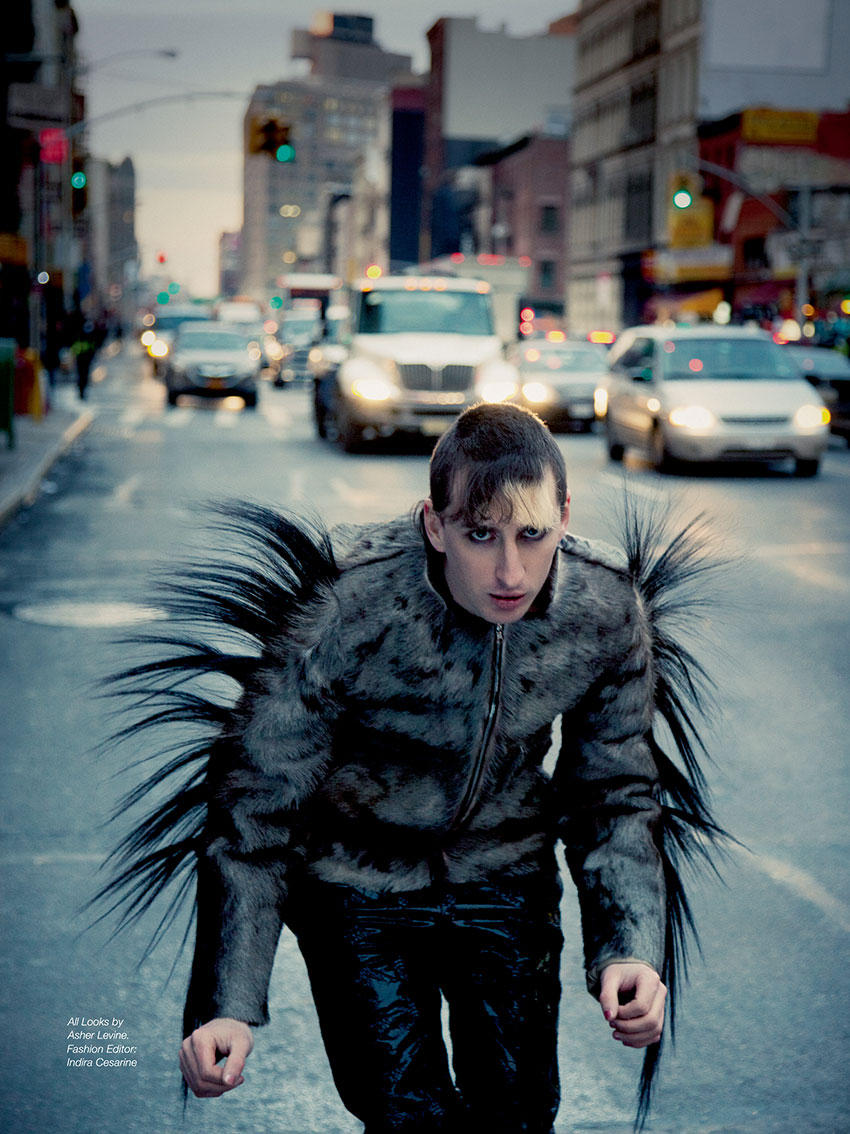
“In many ways, I’m a rock star as well as an anti-rock star.” -Kirin J. Callinan
Kirin J. Callinan has rock & roll in his veins, having grown up watching his father play the stages of Australia. “I grew up with a lot of music,” he says. “Dad was a rock star in a band called The Radiators. They never played in the States, but they were huge in Australia. I think they still hold the record as the longest-running Australian band of all time.” For Kirin, watching his father perform in massive stadiums and seeing gold and platinum records on the wall was just business as usual. At age eleven, Kirin decided to delve into his musical roots. “I had written some songs in grammar school on the school campus,” he says, recalling one particularly memorable song called “I Built the Toilet.” Kirin put together a punk band while in grammar school, where he performed for his peers. “It was about as punk as a ten or eleven year old can get. In my own mind, it went down very well and people loved it.” Kirin didn’t stop there.
Kirin released his album, Embracism, in December of 2013 to glowing reviews. He continues to perform for a dedicated cult following in Australia, his fans drawn to his eccentric personality as much as his music, but a new album is in the works, due to be released this year. He recently was featured on Jack Ladder & the Dreamlanders LP Playmates which was released via Fat Possum on February 24 of this year.
Check out our 2014 Q&A with the rockstar below and pick up a copy of the “Legendary” Issue 7 or download the free “Legendary” Issue App on iTunes now!
Indira Cesarine: So where do you call home?
Kirin J. Callinan: I’m from Sydney. Sydney is beautiful; I wish I could show you what I’m looking at right now. I live about fifteen minutes north of the beach–Avalon Beach.
IC: How did you get started in the music industry?
KC: How I got started? It’s a bit of a difficult story, but I grew up with a lot of music. Dad was a rock star.
IC: Your dad was a rock star?
KC: You’re damn right!
IC: Who is your father?
KC: Brendan J. Callinan, he was in a band called The Radiators. They never played in the States, but they were huge in Australia. I think they hold the record of the longest-running Australian band of all time; they played the most shows and he had gold records and platinum records up on the wall.
IC: So it was in your blood from the beginning?
KC: I didn’t have a choice–family business.
IC: Were you touring with your dad and hanging out on stage as a three year old?
KC: If I was, I don’t remember it. I was on stage as a baby but then he stopped playing music in the early 90s. He was playing with this band in the hay day in the 80s, and he left in the early 90s and started working for a company and still works for them today.
IC: So he decided to stop performing and have a more normal, day-to-day job?
KC: Day-to-day job, yeah. He travels a lot. He’s either in Japan or in L.A., but he likes the industry.
IC: Do you remember the first time that you performed in front of a crowd?
KC: Yeah, absolutely. I had written some songs in grammar school on the school campus and I had a few–one called “I Built the Toilet.” I was in school camp, and someone tried to make a toilet, like a toilet in the bushes.
IC: So that was your first song? Was that in front of your camp crowd?
KC: Yeah, I performed it. That was back at school. I put a band together with all of my acapella choir, and we performed these songs.
IC: And was it very punk?
KC: Very punk. It’s about as punk as a 10 or 11 year old can do. In my own mind it went down very well – people loved it. I was a star, and I didn’t stop from there. I had my high school metal band and other bands as a teenager. I had a band called Mercy Arms as a teenager and we signed a massive record deal with Capitol Records in L.A., but it didn’t quite pan out. What it did do, for me at least, was make it feel real. We started the band and were being flown around the world to all of the record labels, being wined and dined and monied, and it just felt like; ‘well, this is how you do it.’
IC: So what happened?
KC: Yeah, everyone thought that we were going to be the next big thing, and we signed the biggest record deal that had been signed in the world that year – close to a million dollars – and of course we ended up blowing that money. We were kids with not a lot of financial guidance.
IC: You blew it on partying and girls?
KC: Yeah, exactly. We didn’t have girlfriends and we didn’t work; we were just partying. We put a bit of it back into the band, of course– making a record, touring–we did blow it. But we were a good band.
IC: Since the days of Mercy Arms, how has your sound evolved now that you’re a solo artist?
KC: The difference is I feel like I know what I’m doing. You still make things up as you go along, but at least conceptually I understand. I know what I want to do and experience. Back then, as a kid, you kind of just did it to do it. Now, as an artist, I have a clearer vision. That’s pretty much the difference. Stylistically, it’s pretty different. Mercy Arms was a great guitar band, whereas now I’m trying to work in more conceptual ways.
IC: If you had to describe your sound in three words how would you describe it?
KC: That’s a tough one. I would say physical, which is a contradiction, because you can’t really describe a sound as being physical–but physical, masculine and electric. I’m going to hang up this call and think of another word…
IC: I’ll let you change out a word at the end if you’d like. You’ve been known for your raw aesthetic, and thinking of those words, it does make sense, particularly your performing in shorts with lots of skin. I seem to recall you showing me some of your costumes for stage, which were pretty scanty. What’s that all about?
KC: Look, I feel like it isn’t intellectual being in my clothes while performing. I’m in many ways a rock star as well as an anti-rock star. The cliché, hypersexual creature, I like to play with that. I’ve been doing that for a while, specifically for my solo music. It goes with the nature of the music and the performance. I use my body and it’s physical and masculine.
IC: Do you think you’re a bit of an exhibitionist?
KC: I’m an exhibitionist, but it’s not out of vanity at all. It’s a performance and it’s confrontational.
IC: How does it compare when you perform for crowds in Australia versus when you perform in The U.S.?
KC: Definitely. The difference probably is because I’ve been playing here [in Australia] for a long time. Having played my first show in New York sometime during 2012 and coming back sporadically – it’s a bit of a daze for me. The difference is that I have a bigger following here and people have more of an expectation, I guess. But as far as the crowds go, if anything, New York’s crowd was more enthusiastic and willing to give themselves over a bit more. Americans are generally more open and enthusiastic. I guess I’m surprised at how much American audiences have warmed and been open to me everywhere. New York, LA, all throughout America.
IC: So who would you consider to be your favorite contemporary musicians that inspire your work?
KC: I was just thinking of a contemporary one. I was on tour in Australia and one of the guys performing was Danny Brown and he was incredible, I was really into him. But for an all-time sort of thing, there are so many. Allen Vega is big for me. I’ve been into Australian guitar bands for influence and inspiration – especially because they’re Australian. I guess now I’m into conceptual-based music more than ever – stuff that has a unique perspective or that’s implanted with ideas that I’ve not seen in music anymore. I’m finding myself discovering music that I wasn’t into until recently, and I’m finding strength in it.
IC: This is our legendary issue; what do you define as the word “legendary?”
KC: I guess time.
IC: Who would be your top 5 legendary artists?
KC: John Lennon. I may keep it constricted to music as well because I feel out of my depths when I poke around other sorts of artists. Yeah, John Lennon, Scott Walker, Morrisey, maybe…
IC: Do you want to come back to it?
KC: Yeah, because I have so many people coming to mind.
IC: Tell me a bit about some current projects that you’re working on.
KC: I’ve been in the studio doing a couple of songs with Jorge Elbrecht. We had been working on a couple of songs late last year and we’re going to get back into the studio to finish those, which will be coming out sometime. He’s a really talented songwriter and musician. In fact, he’s one of the best. He’s a master – a legend even. Otherwise, I want to make a new record as quickly as possible and focus on the solo album. I have a bunch of projects with making music over the past year or so. I’ve worked with a number of people in between touring, different people all over the world depending on where I am. The most important thing to me is finishing the record and getting it out as soon as possible.
IC: Where do you see yourself ten years from now?
KC: I would love to have some stability in my life (laughs).
IC: Do you think it’s unstable now?
KC: I tour a lot, so I don’t have a solid base, really, and I can’t afford to have a home when I’m not there for nine months out of the year. I would love to be comfortable. I would love to, ten years from now, have a home and family because I’ve spent so long being wild! It’d be nice to bring home a normal girl.
IC: Maybe it’s a bit of ‘like father like son’ – you have your wild days and then you want to settle down. It’s echoing in the generations.
KC: It sounds perfect – the house, the family and I’ll tour occasionally to make it special. Just when the time calls for it.
Interview by Indira Cesarine for The Untitled Magazine
Photography by Indira Cesarine for The Untitled Magazine
Fashion Editor: Indira Cesarine
All looks by Asher Levine
This article originally appeared in The Legendary Issue of The Untitled Magazine (2014).





